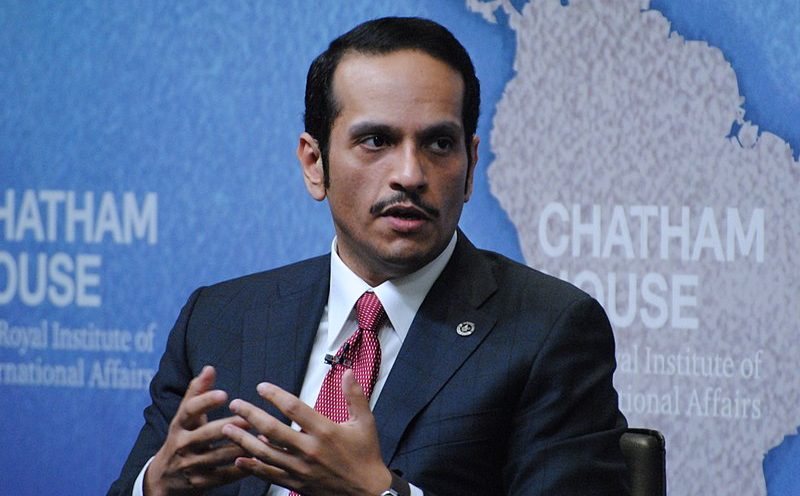When the Taliban militarily took over on 15 August, they made guarantees regarding the protection of the rights of females in Afghanistan.
Qatar’s Foreign Minister Sheikh Mohammed bin Abdulrahman Al Thani said that the international community’s engagement with the Taliban could have prevented some of the restrictions on females’ rights in Afghanistan.
“We believe if we had engaged earlier we wouldn’t have allowed such things to happen,” Sheikh Mohammed told the Financial Times (FT), in an interview published on Sunday.
The Qatari official warned that failure to engage with the acting Afghan administration would lead to more chaos in Afghanistan.
When the Taliban militarily took over on 15 August, they made guarantees regarding the protection of the rights of females in Afghanistan. Qatar has since stressed the need to preserve the rights of women and girls throughout its talks with the interim government.
Despite promising a more moderate rule in comparison to the late 90’s and early 2000’s, the Taliban have appeared to backtrack on their promises. Recent weeks witnessed the return of policies restricting the freedom of women and girls.
Girls have not been able to access education despite the Taliban stating that they can go to school as long as they wore the hijab, or the headscarf. Seven months after the takeover, high school female students, between seventh and twelfth grade, were turned away from their schools per the ministry of education’s order.
Last week, the Taliban also enforced a new order that forces all female television news anchors cover their faces. The restrictive measures led to demonstrations in Afghanistan, calling on the interim Afghan administration to grant women their rights.
On Sunday, Kandahar’s provincial Director for the Ministry of Propagation of Virtue and Prohibition of Vice, Mawlawi Abdul Rahman said that women cannot travel alone in public transportation without a male guardian.
According to Afghan media outlet Khaama Press, Abdul Rahman ordered Taliban fighters to stop vehicles that did not abide by the order.
Afghanistan’s multi-crises
Commenting on the situation in the crisis-laden country, Al-Thani said that only focusing “on part of the humanitarian activities through the international agencies” alone was not enough.
“We will see maybe a rise of extremism. We will start to see an economic crisis, which has already started, and this will just drive the people to more radicalisation and conflict,” Sheikh Mohammed told the Financial Times.
The Qatari official said that the international community should engage with the Taliban “on the economic front” and work closely with the current Afghan administration to boost employment and growth.
“It’s not only about the Taliban becoming more radical, it’s the people who are losing hope in Afghanistan. What are they going to resort to? I think that’s going to be our biggest problem, they are either going to resort to violence or to massive migration,” he said.
The Gulf state played a key role in conflict resolution in Afghanistan. Doha hosted the intra-Afghan talks between Afghanistan’s former government and the Taliban in 2020 in an effort to reach a political solution.
During the same year, it hosted talks between the US and the Taliban, where the Doha agreement was signed. The agreement stipulated a date for the conditional foreign troop withdrawal from Kabul, before it was later revised by the new US Joe Biden administration in 2021.
Following the Taliban takeover, the Gulf state facilitated history’s largest airlift of people, evacuating more than 70,000 Afghans and foreigners.
Qatar also continued to facilitate dialogue between the west and the interim Taliban-led administration to address the dire economic and humanitarian situation on the ground. It has also hosted the Taliban’s office since 2013.
Responding to a question on whether the west should financially support the Afghan government, Al-Thani said that there should be “reciprocal measures” and “a very strict monitoring mechanism.”
He said that both factors are crucial in ensuring that the money goes to “the right people” in the country.
The US had contributed to the worsening economic and humanitarian situation in Afghanistan by freezing up to $9.1 billion of Afghan assets following the Taliban’s takeover.
In February, President Biden ordered the release of $7 billion of Afghanistan’s funds. The Biden administration decided to give Afghans living under dire humanitarian conditions $3.5 billion of the total amount.
He said the other half of the Afghan funds will be going towards victims of the 9/11 attack. The move was slammed by activists and Afghans as a way for the US to “punish” Afghans.







